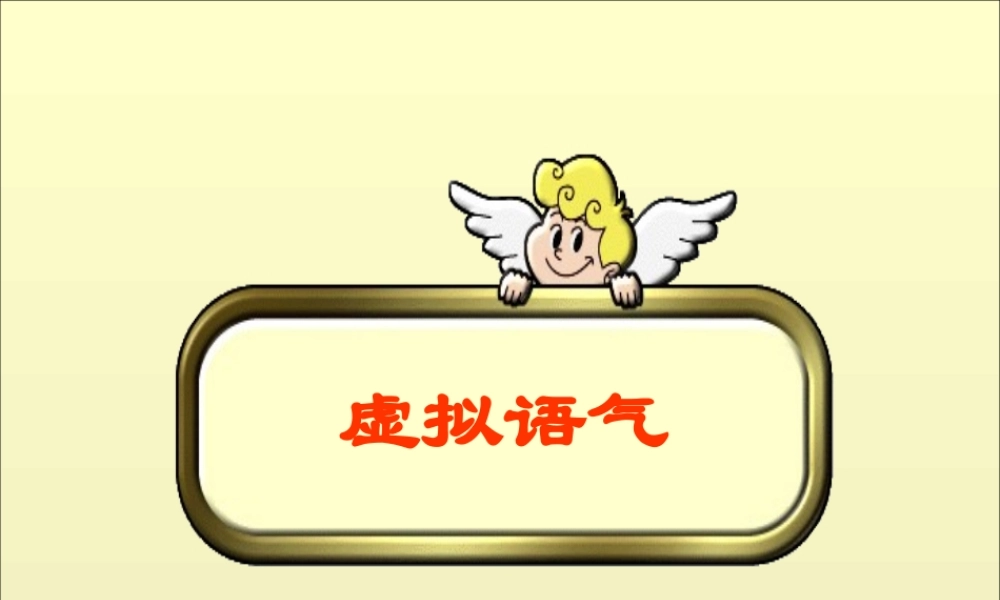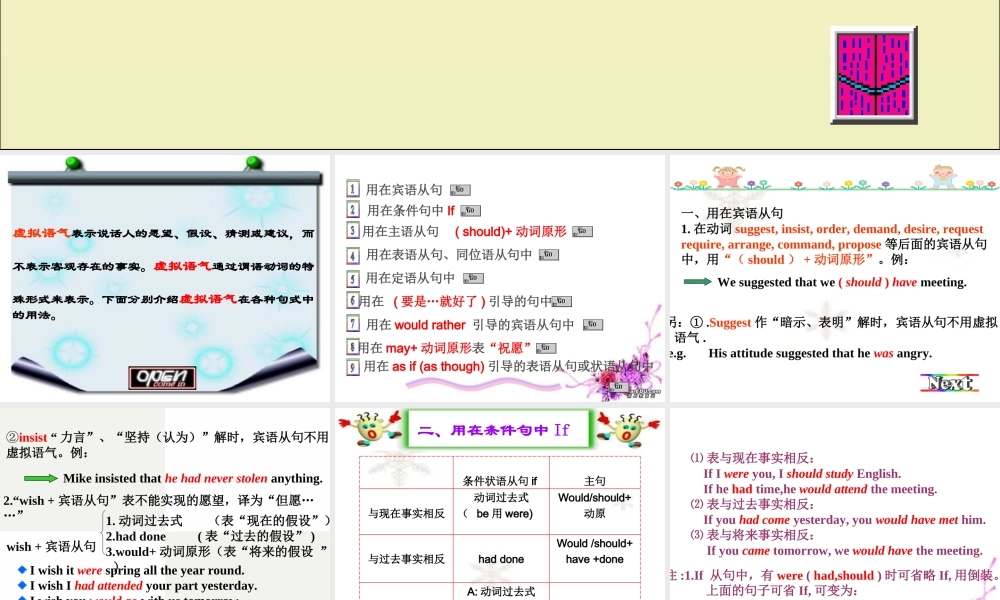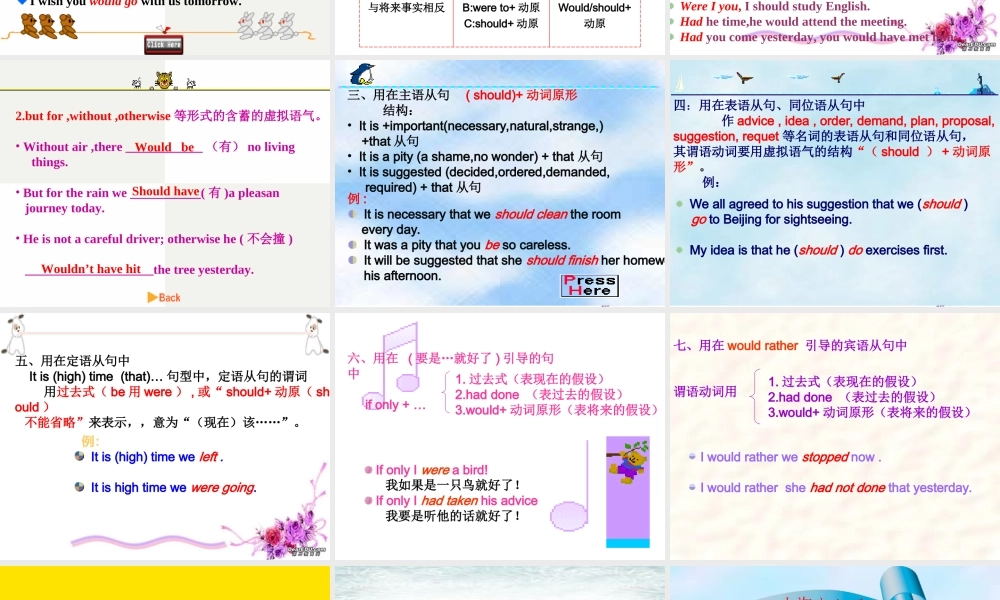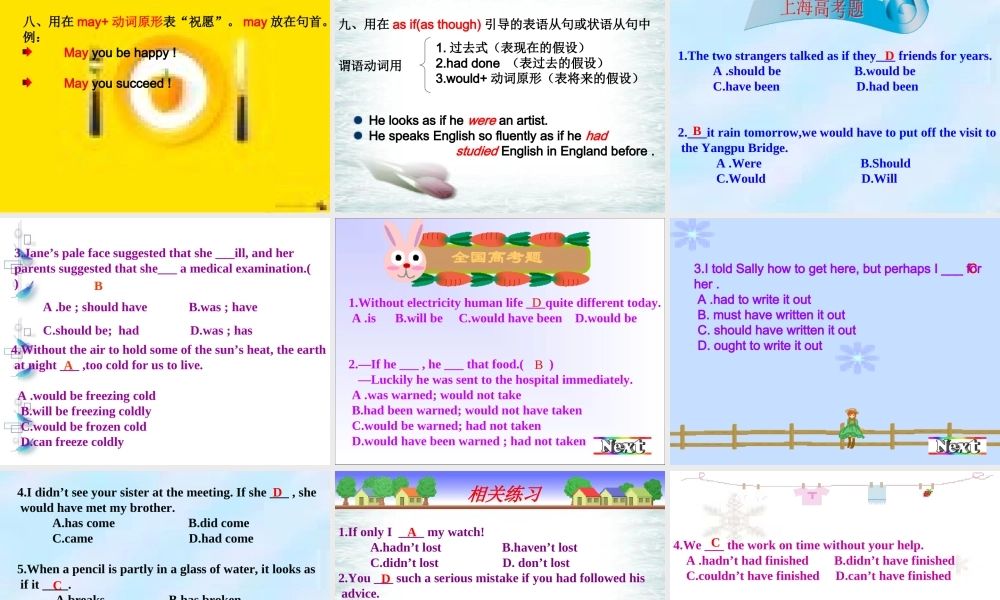虚拟语气虚拟语气表示说话人的愿望、假设、猜测或建议,而不表示客观存在的事实。虚拟语气通过谓语动词的特殊形式来表示。下面分别介绍虚拟语气在各种句式中的用法。用在宾语从句用在条件句中 If 用在主语从句 ( should)+ 动词原形用在表语从句、同位语从句中用在定语从句中用在 ( 要是…就好了 ) 引导的句中用在 would rather 引导的宾语从句中用在 may+ 动词原形表“祝愿”。用在 as if (as though) 引导的表语从句或状语从句中一、用在宾语从句1. 在动词 suggest, insist, order, demand, desire, request require, arrange, command, propose 等后面的宾语从句中,用“( should ) + 动词原形”。例: We suggested that we ( should ) have meeting.另:① .Suggest 作“暗示、表明”解时,宾语从句不用虚拟 语气 . e.g. His attitude suggested that he was angry.②insist “ 力言”、“坚持(认为)”解时,宾语从句不用虚拟语气。例:Mike insisted that he had never stolen anything.2.“wish + 宾语从句”表不能实现的愿望,译为“但愿……” wish + 宾语从句1. 动词过去式 (表“现在的假设”)2.had done ( 表“过去的假设” )3.would+ 动词原形(表“将来的假设 ” ) I wish it were spring all the year round. I wish I had attended your part yesterday. I wish you would go with us tomorrow.二、用在条件句中 If 条件状语从句 if 主句与现在事实相反动词过去式( be 用 were) Would/should+动原与过去事实相反 had done Would /should+have +done与将来事实相反A: 动词过去式B:were to+ 动原C:should+ 动原Would/should+动原 ⑴ 表与现在事实相反: If I were you, I should study English. If he had time,he would attend the meeting. ⑵ 表与过去事实相反: If you had come yesterday, you would have met him. ⑶ 表与将来事实相反: If you came tomorrow, we would have the meeting.注 :1.If 从句中,有 were ( had,should ) 时可省略 If, 用倒装。 上面的句子可省 If, 可变为: Were I you, I should study English. Had he time,he would attend the meeting. Had you come yesterday, you would have...




